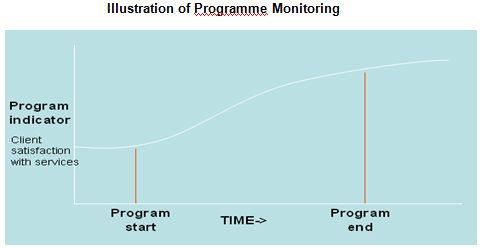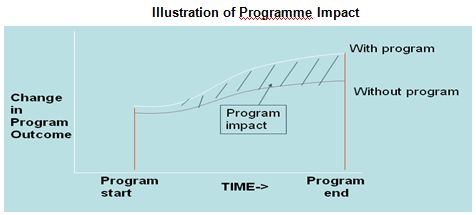Monitoring is the systematic process of collecting, analyzing and using information to track a programme’s progress toward reaching its objectives and to guide management decisions. Monitoring usually focuses on processes, such as when and where activities occur, who delivers them and how many people or entities they reach.
Monitoring is conducted after a programme has begun and continues throughout the programme implementation period. Monitoring is sometimes referred to as process, performance or formative evaluation. (Adapted from Gage and Dunn 2009, Frankel and Gage 2007, and PATH Monitoring and Evaluation Initiative)

Evaluation is the systematic assessment of an activity, project, programme, strategy, policy, topic, theme, sector, operational area or institution’s performance. Evaluation focuses on expected and achieved accomplishments, examining the results chain (inputs, activities, outputs, outcomes and impacts), processes, contextual factors and causality, in order to understand achievements or the lack of achievements. Evaluation aims at determining the relevance, impact, effectiveness, efficiency and sustainability of interventions and the contributions of the intervention to the results achieved.
(Adapted from Gage and Dunn 2009, Frankel and Gage 2007)
An evaluation should provide evidence-based information that is credible, reliable and useful. The findings, recommendations and lessons of an evaluation should be used to inform the future decision-making processes regarding the programme.

Monitoring and evaluation of initiatives on violence against women and girls take place on a number of different levels, depending on the goals and objectives of the programme and the scope of activities and strategies being designed or implemented.
For example, monitoring and evaluation would look different for:
a school-based prevention programme
a training programme on the systematic use of screening protocols throughout the health sector
the implementation of domestic violence legislation
an awareness-raising campaign aimed at engaging men
the institutionalization of a coordinated community response